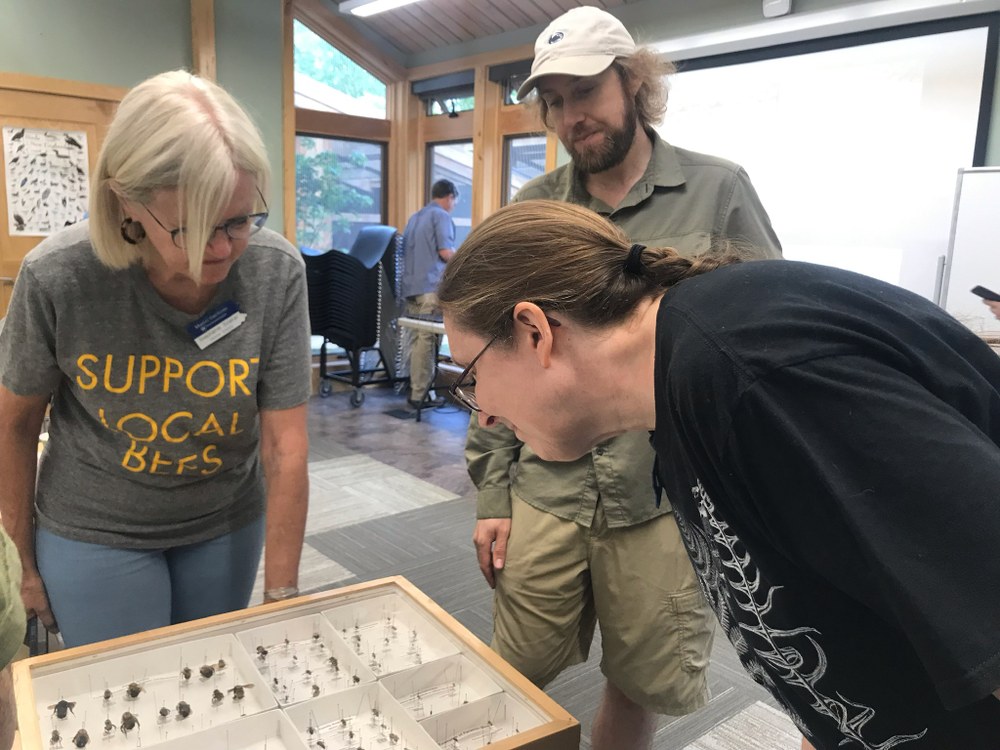Bees are the most important pollinators of flowering plants in natural, agricultural, and urban habitats, and are critical for their ecological function. The decline of bee populations worldwide has called attention to the need to better understand the diversity, distribution, and abundance of wild bee pollinators.

A recent study from the López-Uribe lab updated the number of species reported in Pennsylvania to 437, providing a first step to our understanding of the regional bee diversity across the state. However, the status of wild bee populations in Pennsylvania (whether they are stable, declining, or increasing) is currently unknown.
Researchers from the López-Uribe lab are working with Master Gardeners to leverage their knowledge and interest in pollinator natural history and train them in bee identification, curation, and sampling protocols. The program offers a series of webinars and hands-on field and lab days to train project participants to make field collections independently. The data collected by participants will be used to gain better knowledge about the diversity and distribution of wild bees in Pennsylvania.

